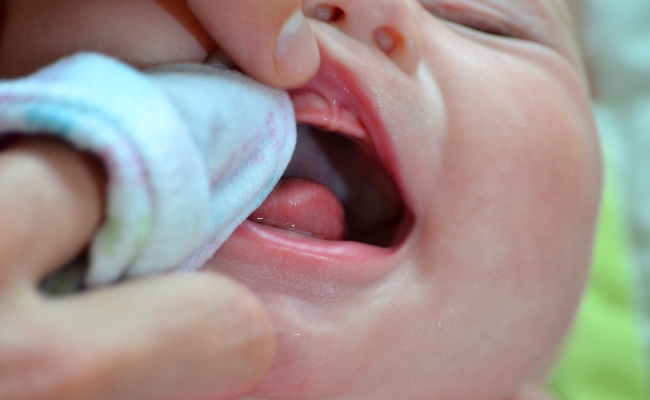
Baby Gum Care: A Comprehensive Guide for Parents
Introduction
The health of your baby’s gums is crucial for their overall well-being. Healthy gums provide a strong foundation for developing teeth, prevent infections, and contribute to a healthy smile. As a parent, it’s essential to understand the importance of baby gum care and implement proper practices to ensure your child’s oral health. This comprehensive guide will provide you with all the necessary information and tips to maintain your baby’s gum health.
Teething and Gum Development
Teething is a natural process that begins around 6-8 months of age. During this time, your baby’s gums will swell and become tender as the teeth push through the surface. Teething can cause discomfort and irritability, but it’s also a sign of healthy development.
Signs of Teething
- Swollen and red gums
- Drooling
- Irritability and crying
- Chewing on objects
- Ear pulling
Gum Care During Teething
- Massage the gums: Gently massage your baby’s gums with a clean finger or a soft toothbrush. This can help soothe the discomfort and promote circulation.
- Use a teething ring: Teething rings provide a safe and effective way for babies to relieve pressure on their gums. Choose teething rings made of non-toxic materials and avoid those with sharp edges.
- Offer cold foods: Cold foods, such as frozen fruit or chilled teething biscuits, can help numb the gums and reduce inflammation.
- Avoid sugary foods: Sugary foods can contribute to tooth decay and gum disease. Limit your baby’s intake of sugary drinks and snacks.
Gum Care for Babies Without Teeth
Even before teeth erupt, it’s important to care for your baby’s gums. Here are some tips:
- Wipe the gums: Use a clean, damp washcloth or gauze to gently wipe your baby’s gums after feedings. This helps remove any food particles or bacteria that can cause irritation.
- Use a finger brush: A finger brush is a small, soft-bristled brush that fits over your finger. Use it to gently brush your baby’s gums twice a day.
- Avoid pacifiers with sugar: Pacifiers with sugar can damage your baby’s gums and teeth. Choose pacifiers made of non-toxic materials and avoid those with sugar coatings.
Gum Disease in Babies
Gum disease is a rare but serious condition that can affect babies. It’s caused by bacteria that accumulate on the gums and teeth. Symptoms of gum disease in babies include:
- Swollen and bleeding gums
- Receding gums
- Loose teeth
- Pain and discomfort
If you notice any of these symptoms, consult with your pediatrician or dentist immediately.
Preventing Gum Disease in Babies
- Brush your baby’s teeth regularly: Once your baby’s teeth erupt, brush them twice a day with a soft-bristled toothbrush and fluoride toothpaste.
- Floss your baby’s teeth: Flossing helps remove plaque and bacteria from between the teeth. Start flossing your baby’s teeth as soon as they touch each other.
- Limit sugary foods and drinks: Sugary foods and drinks contribute to tooth decay and gum disease. Limit your baby’s intake of these items.
- Take your baby to regular dental checkups: Regular dental checkups allow your dentist to examine your baby’s gums and teeth for any signs of disease.
Additional Tips for Baby Gum Care
- Use a soft toothbrush: Choose a toothbrush with soft, rounded bristles that won’t irritate your baby’s gums.
- Use fluoride toothpaste: Fluoride helps strengthen teeth and prevent tooth decay. Use a fluoride toothpaste specifically designed for babies.
- Don’t share utensils: Sharing utensils with your baby can transfer bacteria to their mouth. Use separate utensils for your baby and wash them thoroughly after each use.
- Avoid smoking: Smoking around your baby can increase their risk of gum disease and other health problems.
Conclusion
Baby gum care is an essential aspect of your child’s overall health and well-being. By following the tips and practices outlined in this guide, you can help ensure your baby’s gums remain healthy and strong. Remember to consult with your pediatrician or dentist if you have any concerns about your baby’s gum health. With proper care, your baby can enjoy a healthy smile for years to come.
